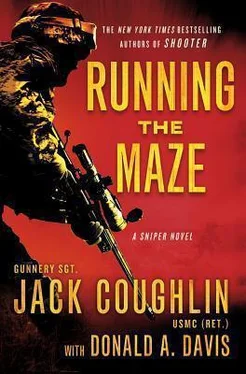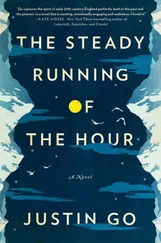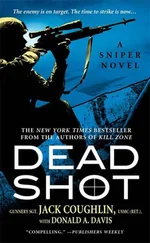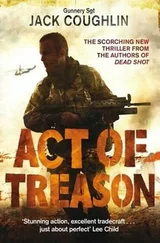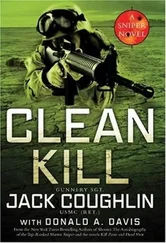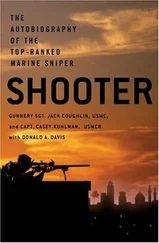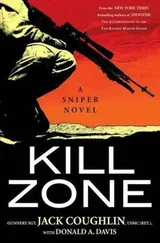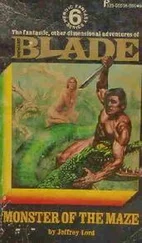A nurse was busy unfastening the straps that had held him immobile. The IV tube remained connected to a small needle that was taped in place on the back of his right hand. He noticed that bandages wrapped his left arm, his chest, his stomach, and his left thigh.
“You had a very close call, my friend,” the sergeant said. “An assassin attacked while you were asleep. You somehow woke up enough to fight back, but by the time we reached your room, you were a bloody mess, rolling around on the floor, fighting the attacker. You prevented him from slitting your throat or puncturing your vital organs. Well done, Chief Engineer.” Hafiz patted the uninjured arm and smiled. “Maybe I could make a soldier out of you.”
“Please, can I have some water? My throat is as dry as the sands.” The nurse came with a jug and a glass of ice. She put a straw into his mouth, and he sucked in the chilled liquid. “An assassin? In here?”
“Yes. Of all people, it was your servant, the mute. Obviously he had been put in play by our enemies to spy on your work. Now that you are nearing completion of this magnificent project, his paymasters decided to stop you before you could finish.”
“What happened to him?”
“I killed him.” Hafiz shrugged. “Piece of filth. The ISI is going through his past history now to determine who he worked for. It looks like the work of the Zionists.”
Al-Attas sagged against the pillows. “I cannot believe it. The man was a termite, a nothing, merely someone to clean my living quarters. I hardly ever noticed him. He could not even speak.”
Hafiz said, “Exactly. What a clever fellow, eh? Who would ever have suspected him? We will find someone more trustworthy to perform those duties. But that’s over, so don’t worry about it. Here you are with about a half-dozen good cuts, some of them deep, and the doctors had to spend some time sewing you back together. You lost quite a bit of blood. It was good fortune that you had built this wonderful medical facility, for by doing so, you helped saved your own life. Allah was merciful.” At a nod from the sergeant, the nurse opened the morphine drip again.
“I am tired.” Al-Attas’s pain receded into a mild throbbing, and then went away.
“Then sleep, Chief Engineer. All is well now, and you will be back to work in no time.”
Sergeant Hafiz sat back in his chair and stared at the bandaged young man. He had changed his mind. What am I to do with you?
* * *
UNDERSECRETARY WILLIAM LLOYD CURTIS of the Department of State’s Bureau of American-Islamic Affairs received a copy of Sergeant Hafiz’s report to General Gul, which was hand-delivered by a member of the Pakistani Embassy with diplomatic immunity. Curtis dismissed the messenger, so he could read and consider the message in private.
The near-suicide by Mohammad al-Attas did not exactly come as a surprise, for the man had been known for some time to be somewhat mentally unstable. The peculiarities of his personality were far outweighed by the value of his ideas and his work.
Curtis had known him a long time, since he had personally recruited the young engineer ten years ago, while al-Attas was still a semester short of obtaining his master’s degree in electrical engineering at the Massachusetts Institute of Technology. The brilliant student had been not much more than a boy, only nineteen years old, but Curtis believed that al-Attas had an innate talent and could probably build a cathedral from a child’s set of plastic LEGO bricks. Further specialized education had followed MIT, with field assignments on major projects in Brazil, Arizona, Germany, and Indonesia. It was in the mosques of the teeming capital of Jakarta that al-Attas’s latent Islamic beliefs bloomed into serious study of the Koran.
Curtis had applied gentle pressure to ensure that the youngster embraced the fundamentalist pull of the religion, for it was an opportunity. As if he were the owner of a sports franchise, Curtis traded the rising-star engineer to his good friends at the largest construction company in Saudi Arabia, and when the boy proved to be more comfortable in the Middle Eastern environment, his extraordinary skills continued to improve.
When the international consortium of giant building companies needed a special man to head the secret new project in Pakistan, Curtis had suggested al-Attas for the job, for it dovetailed with his other interests.
Now it appeared that the unique usefulness and skills of Mohammad al-Attas might be coming to an end. The report from General Gul had been a courtesy alert of possible danger.
The undersecretary did not object, for the engineer knew too much and was a direct link back to Curtis, and that could not be exposed. Although his company was being run by a blind trust during his tenure in public service, Big Bill Curtis still kept a close eye on his empire. His friends trusted him to do that, and not to make mistakes.
Disappointed, Curtis prepared a reply for General Gul. The overall task and protecting Commander Kahn were of far more importance than the life of young al-Attas, or anyone else, and keeping the Curtis name out of the affair was mandatory. The ISI had his approval to do as it thought best.
THE SUMMER SQUALL CAME on the starboard quarter, from out of the northeast, just before sunset. Swirling, steady winds increased in strength, and the Vagabond altered course slightly to nose into the rising sea. With plenty of depth, and no land nearby, the ship had room to maneuver, and there was no schedule to keep. Solid-state inertial sensors fed digital processors that automatically positioned stabilizing fins to keep the yacht running smoothly at twelve knots with only a minimal roll. Grim clouds moved in and loosed cascades of raindrops that broke hard against the windows before sliding harmlessly away into the scuppers. Beth Ledford was comfortable. “It feels good to be back on the water again,” she said.
“How does Vagabond stack up against your big Coast Guard cutters in this sort of little blow?” Sir Jeff was beside her, one hand on his cane and the other holding a glass of whisky.
“We would be feeling the change worse than this, humping along and busting wave after wave. But look at this.” The surface of the sweet white chenin blanc in her stemless Reidel crystal glass hardly rippled with the motion of the yacht. “Your ship sails like a dream, Sir Jeff. Our cutters aren’t designed for personal comfort, but they can handle anything any sea can throw at them.”
“As good as a Navy ship?”
She laughed. “Better. We have much more control of our vessel, with highly trained crews in every compartment, and we are more mission oriented. Innocent lives can be at stake every time we’re out. Entirely different animals.”
Jeff sipped the amber liquid. “Kyle says you can shoot.”
“Yes, sir. I’m a qualified sniper.”
“He says you’re even better, that you have a special gift for it.”
“He never said that to me.”
Jeff grinned. “No. He wouldn’t, would he? Well, my dear, this weather will clear soon. Tomorrow morning, I’ll give you a tour of our armory and you can test some of the experimental weaponry we have aboard, if you wish.”
She was charmed by the old man but had to bite back her normal reaction when she felt somebody wanted to test her. He was not patronizing, however, but speaking as one professional to another, and as a host to a guest. “You know, I think that might be fun,” she said.
“Excellent,” he said. “Now if you’ll please help an old man over to the table, I see that Kyle is done with all of the homecoming greetings and wants to make us work before dinner.”
Swanson had spread out computer photographs, overhead satellite imagery, maps, and relevant paper and was standing there staring at them, with his hands on his hips. “I don’t know how it happened, Jeff, but someone has been either one step behind us or one step in front ever since we got involved in this thing. That’s why we came out here. Whatever we decide must be off the reservation.”
Читать дальше
